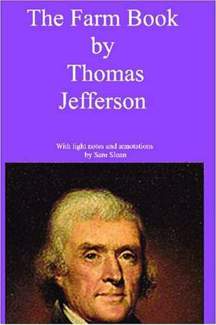
By ANNETTE GORDON-REED
Spirited denials of the Jefferson-Hemings relationship have been staples of Jefferson scholarship for more than a century. They date back to the work of Henry Randall in the 1850's and can be found today in Joseph J. Ellis's "American Sphinx," which won the National Book Award in 1997.
No one who has studied the controversy closely should receive this latest news as if it were a bolt from the blue.
If this evidence had been applied to almost anyone other than Jefferson, the matter would have been settled long ago. Make no mistake, the additional scientific information is important. But the truth is that historians need not have ceded the question to scientific investigators. A more disciplined, rigorous and less prejudiced application of historical method could have yielded the same answer.
The trouble is that the scholars who fashioned Jefferson's image were either unwilling or unable to weigh the matter objectively. This did not stop them, however, from writing as if they had done so. In addition, they convinced many Americans that they really had tried to discover the truth. They succeeded in this because of two unfortunate features of the American racial landscape.
The first has to do with the difficulty many Americans have in coming to terms with black-white sexuality, particularly in the case of a Founding Father. For this reason an extraordinarily high level of proof was required, far more than what would normally have been required. Even now the language used to greet the new evidence is revealing.
Some commentators have spoken of Jefferson's "guilt" as well as of a "flaw" in his character. Others have wondered whether the "jury" is or is not still out on the question. All this suggests that present-day observers think Jefferson's involvement with Hemings was a crime more heinous than the crime of his legal ownership of her.
This is in keeping with the second reason the prevailing view was allowed to float along under the protective shield of Jefferson scholarship for so long. The dehumanization of blacks, which began with slavery, haunts us to this very day and distorts historical perspectives. For instance, historians customarily rely on voices from the past to help shape historical reality.
The most important historical witness in this story is undoubtedly Madison Hemings, who asserted in a memoir, published in 1873, that he, Beverley (a male), Harriet and Eston were the children of Jefferson and Sally Hemings. This memoir gives the most detailed account we have of the relationship between Jefferson and Hemings and describes the private Thomas Jefferson in close detail.
Yet in the eyes of many historians, Hemings's race and status as a former slave made him an unfit and possibly unreliable contributor to our understanding of the past.
On the other hand, Jefferson's grandchildren's argument that Jefferson's nephews fathered the Hemings children has been treated with great respect and deference, despite the fact that their account was riddled with patent contradictions, wild lapses in logic and obvious falsehoods.
But time and again, historians exhibited the unfortunate human tendency to see only the things we want to see and to know only those things we want to know. This tendency has served no good purpose in the struggle to come to terms with American history.
The Jefferson-Hemings story is really about family more than just about sex and it has broad implications for all Americans. Now that we are free to consider the story in a fair and open fashion, perhaps we can also bring a new understanding to slavery and race and to our growth as a nation. Once everyone's voice is heard equally, "surprises" like this one will be a thing of the past.
Annette Gordon-Reed, an associate professor at New York Law School, is the author of "Thomas Jefferson and Sally Hemings: An American Controversy."